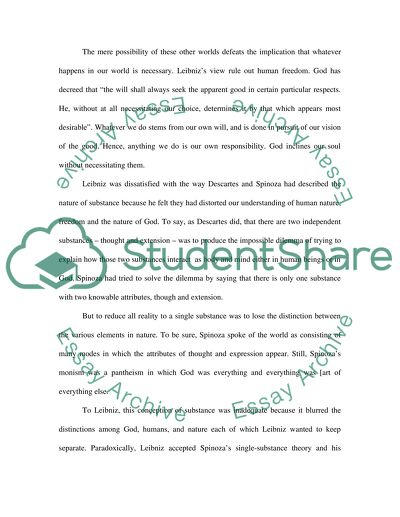Leibniz's Conception of Substance Essay Example | Topics and Well Written Essays - 1250 words. Retrieved from https://studentshare.org/miscellaneous/1513747-leibnizs-conception-of-substance
Leibniz'S Conception of Substance Essay Example | Topics and Well Written Essays - 1250 Words. https://studentshare.org/miscellaneous/1513747-leibnizs-conception-of-substance.


